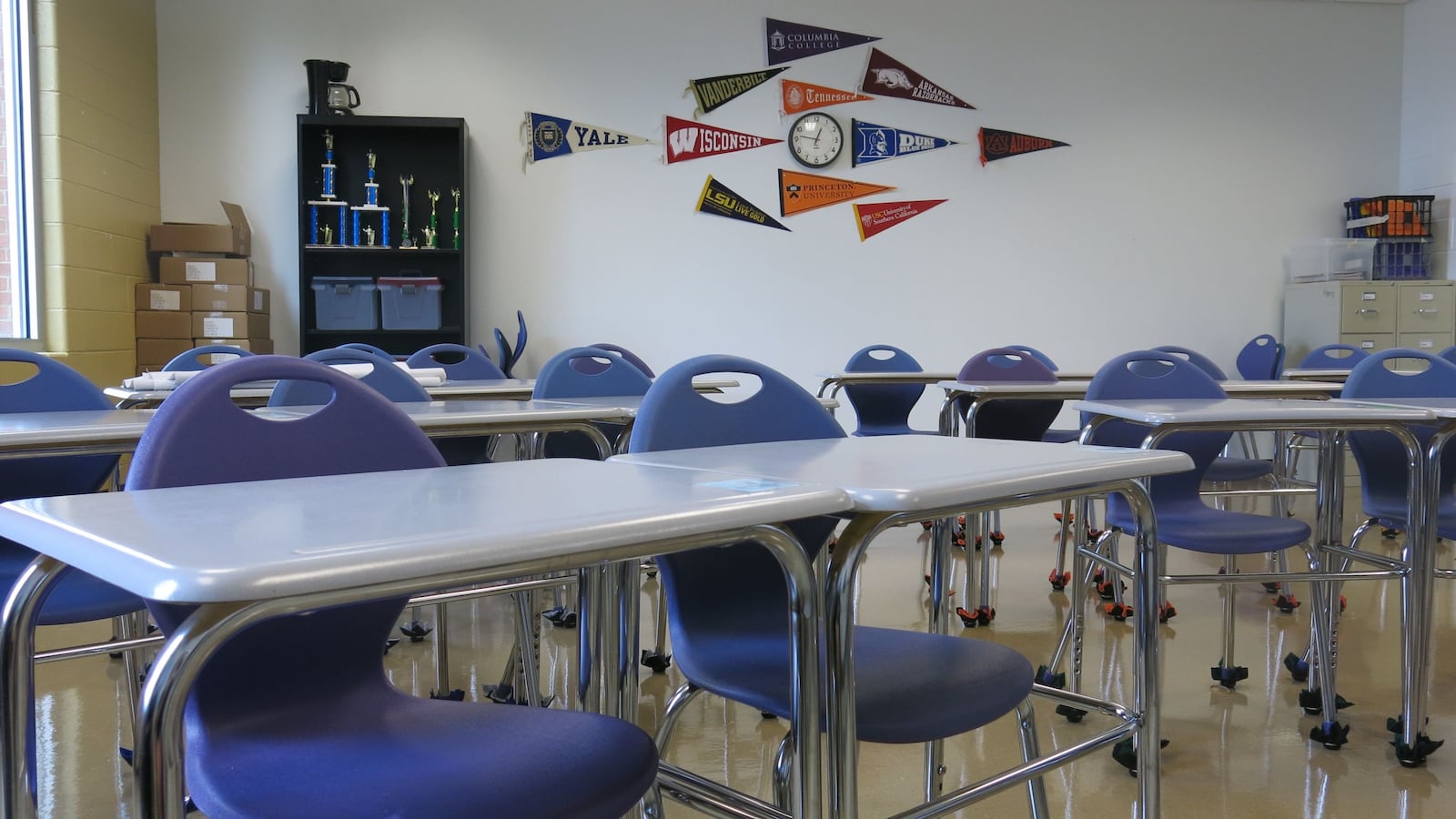Students who won a school voucher in Louisiana to attend their top-ranked private high school were 6 percentage points more likely to enroll in college than students who lost the lottery, according to a new study.
The findings are reasonably good news for voucher supporters, who recently had to confront huge drops in test scores because of Louisiana’s program. Still, the results were not statistically significant — meaning the researchers can’t confidently say that the voucher made the difference.
It’s the latest attempt to quantify the effects of school vouchers, which allow students to attend private school using public dollars. They are a favored policy of U.S. Secretary of Education Betsy DeVos, albeit one she’s so far had little success at pushing from Washington.
This study, which has not been formally peer-reviewed, focuses just on the first group of students who took advantage of Louisiana’s controversial voucher program starting in 2012.
Previous research on student achievement in the initial years of the program was decidedly negative. It found that students in elementary and middle school who won a voucher saw their test scores decline sharply. By year three of the program, some students had bounced back, but not others.
That’s why the latest results are particularly notable: the impact of vouchers on college enrollment was neutral, even potentially positive. Voucher recipients, who were lower-income and largely black, saw enrollment rates rise from 54 percent to 60 percent, the study estimates.
The data could bolster the case of school choice advocates who have increasingly rejected test scores as their benchmark of success, pointing instead to high school graduation or college enrollment rates.
“The pattern in the literature seems to suggest that schools affect students in positive ways that are not always detected in standardized tests,” write the authors Heidi Erickson, Jonathan Mills, and Patrick Wolf of the University of Arkansas.
(Debates on whether this is true have grown increasingly prominent, with some choice advocates highlighting studies where results between test scores and longer-run outcomes point in the same direction. This study doesn’t look at test scores.)
Mark Dynarski, a researcher who has studied voucher programs and reviewed the new Louisiana research at Chalkbeat’s request, said the study was sound. But he notes an important caveat: because of how the state allocates vouchers, the study only looks at students who won one for their top-ranked private school.
That doesn’t include students who got a voucher to attend a lower-ranked private school or students whose private schools not popular enough to need a lottery.
“Essentially the study is comparing how much better these first-choice schools are compared to ones parents rank lower, including public schools,” said Dynarski. “Parents who win a second or third-choice lottery can elect not to send their child there and instead stick with the public school.”
Of the nearly 10,000 students who applied for a voucher in Louisiana for the 2012-13 school year, the study looks at the less than 500 who were high school students who won a voucher lottery. The small sample may help explain why the study can’t confidently say whether vouchers had any effect on college enrollment.
Wolf said the study’s approach was the only option given how Louisiana distributes vouchers, and that the approach makes sense in light of the goal of the policy. “The first choice school is the one parents and students would most prefer to attend,” he wrote in an email. “That’s the whole intention of school choice.”


